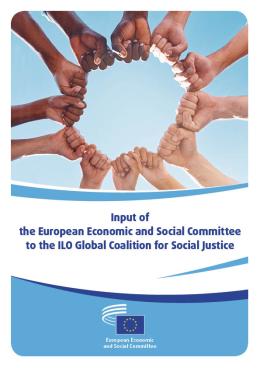European Economic
and Social Committee
Latijns-Amerika en het Caribisch gebied
Het EESC werkt sinds de jaren 1990 samen met Latijns-Amerikaanse en Caribische tegenhangers. Verschillende EESC-adviezen hadden betrekking op de betrekkingen met deze regio op regionaal, subregionaal en nationaal niveau. Tot de prioriteiten van het EESC behoren de ontwikkeling van het maatschappelijk middenveld, economische en sociale ontwikkeling, regionale integratie en samenwerking op multilateraal niveau.
Op regionaal niveau organiseert het EESC tweejaarlijkse bijeenkomsten tussen de vertegenwoordigers van het maatschappelijk middenveld in Europa, Latijns-Amerika en het Caribisch gebied, als een van de voorbereidende evenementen voorafgaand aan de EU-Celac-top.
Op subregionaal en nationaal niveau zijn verschillende permanente structuren opgezet: in 2009 heeft het EESC samen met de Braziliaanse Sociaal-Economische Raad een rondetafel van het maatschappelijk middenveld opgezet om een forum te bieden voor dialoog en voortdurende samenwerking tussen de vertegenwoordigers van het Braziliaans en Europees maatschappelijk middenveld. De associatieovereenkomst tussen de EU en Chili gaf het EESC een mandaat om een gemengd raadgevend comité op te richten met zijn Chileense tegenhanger van het maatschappelijk middenveld, om toezicht te houden op de overeenkomst. Deze werd uiteindelijk opgezet in 2016. Het EESC neemt ook deel aan het Raadgevend Comité Cariforum-EU dat toezicht houdt op de economische partnerschapsovereenkomst tussen Cariforum en de EU. Het EESC neemt ook deel aan het raadgevend comité EU-Cariforum dat toezicht houdt op de economische partnerschapsovereenkomst tussen Cariforum en de EU. Er zijn permanente betrekkingen tot stand gebracht met de institutionele tegenhangers van het EESC in de Mercosur (het Sociaal-Economisch Forum) en Midden-Amerika (het Raadgevend Comité van het Centraal-Amerikaans Integratiesysteem).

